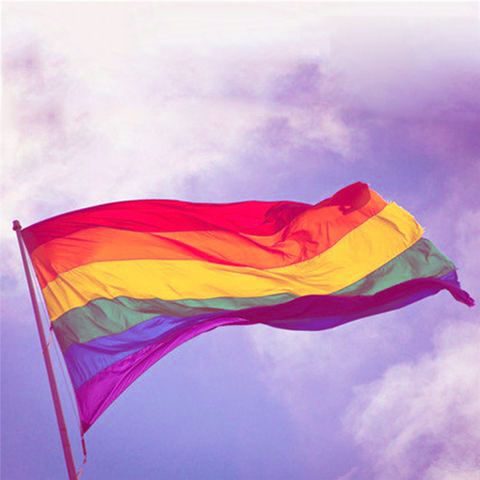
Can a $250,000 Grant Unite a Growing Intersex Movement?
Can a $250,000 Grant Unite a Growing Intersex Movement?
By: Andrew Wallace on November 6, 2016
The first ever intersex-specific grant from the U.S. State Department-administered Global Equality Fund is helping to raise the profile of global intersex issues. The grant represents an important acknowledgment of the growing intersex movement, as intersex people around the world continue to face unacceptable violence and discrimination. As noted by J. Bob Alotta, the Executive Director of the Astraea Foundation, “[the rights of intersex people] are either dismissed as the concerns of a very small minority, or thoughtlessly tacked on to the end of the LGBT acronym.” Due in part to this lack of visibility and dismissal of the specific needs of intersex people within the broader LGBTQ movement, philanthropic support has been shocking low. Over the two year period from 2013 to 2014, funding for projects that explicitly served the needs of intersex communities received approximately $700,000, or less than 1 percent of the total amount awarded for global LGBTI issues.
When Kobi Conaway and Andrew Owen approached the Astraea Foundation with $25,000 and a desire to do their part to support intersex issues after adopting an intersex child, Astraea recognized an opportunity to leverage the gift into something more ambitious than a one-time donation. With early support from the Arcus Foundation and subsequent commitments from other partners, that initial gift grew to become the Intersex Human Rights Fund, one of the first funds to explicitly “support organizations, projects and campaigns led by intersex activists working to ensure the human rights, bodily autonomy, physical integrity and self-determination of intersex people worldwide.” To date, the Fund has raised $900,000 from four partner foundations, private donors, governments and others for its multi-year grantmaking, capacity-building, and philanthropic advocacy efforts. In a notable first, the U.S. Department of State Global Equality Fund recognized intersex human rights by awarding a $250,000 grant over two years to support the Fund’s convening and movement building capacity.
Astraea is committed to raising the visibility of intersex experiences and issues among funders to further philanthropic investment in the movement. Sarah Gunther, Astraea’s Director of Programs, recalls witnessing an increasingly organized global movement. “We heard the call from the intersex community that made it clear we needed to do more, but we also realized that we had so much to learn.” At an early convening of activists, Sarah recalled several key takeaways. Beyond a clear need for more philanthropic support and infrastructure to sustain the growing global movement, activists identified the importance of better understanding and communicating the often misunderstood human rights violations intersex people face. To this end, the Fund has invested significant resources into research and education. The recently released report, We are Real: The Growing Movement Advancing the Human Rights of Intersex People, is a direct result of those efforts. “We knew that one of the greatest challenges for funders was a lack of knowledge of intersex people and the movement for intersex human rights,” said Gunther. The report is “an excellent way to educate the funding community while demonstrating our commitment to the movement.”
As of this writing, the Intersex Human Rights Fund has awarded a total of $400,000 in grants, most recently to 32 intersex-led groups in 27 countries. By supporting intersex-led organizations and connecting previously isolated communities the fund hopes to foster a sustainable and visionary movement. And as this global movement gains momentum, more and more intersex individuals around the world are stepping forward and making their stories known. This is an important moment for some, like fund advisor Morgan Carpenter. “I can’t remember so many people disclosing their status, sharing their stories,” noted Carpenter. “Just seeing people’s faces in photographs associated with events and articles. That visibility has never existed before.”
When asked what she would like to communicate to funders who have not yet supported intersex issues, Astraea’s Gunther replied, “there is so much still to learn from the intersex activist community. Listen and think about how intersex liberation intersects with your theory of change or your mission. As LGBTQ and social justice funders, we have a key role to play.”

